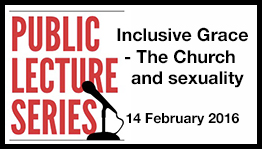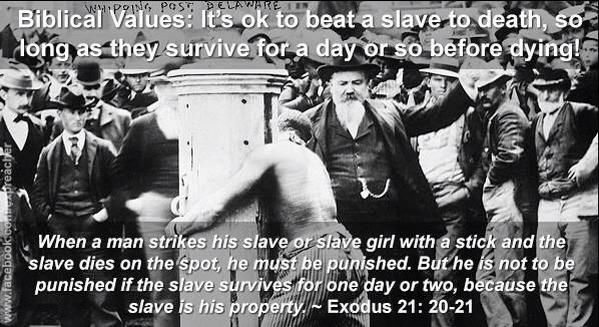Rev. Len Abrams Ephesians 2: 11-22
Inclusive Grace: The church and sexuality
Introduction
Ephesians 2 is one of the most compelling passages in the new Testament. What Paul would have thought was utterly impossible in  his
his  previous life as a Pharisee. He now proclaims that in Christ there is no difference between Jews and Gentiles. Dividing walls have been broken down and hostility has ceased. The old law which specifically forbade the mixing of the Jews with other peoples was abolished and, in Christ, all are included under the saving grace of God through faith in Jesus.
previous life as a Pharisee. He now proclaims that in Christ there is no difference between Jews and Gentiles. Dividing walls have been broken down and hostility has ceased. The old law which specifically forbade the mixing of the Jews with other peoples was abolished and, in Christ, all are included under the saving grace of God through faith in Jesus.
Today I want to speak on a very sensitive issue in the church. I do so with trepidation but with conviction after having discussed it with Rev Fiona. I want to talk about human sexuality and the faith – the church and gay people. I want to do so in the form of a testimony to share my particular faith journey in this matter which will differ from the journey of everyone else.
Something of a crisis of faith
I became a Christian as a teenager in a conservative evangelical context. Initially for a few years I believed that homosexuality was an abomination in line with the teachings of that particular tradition. I then entered a period of probably 25 years or so where I did not really know what I believed and found it easier to simply avoid the issue: it was too complex and too painful.
In time, however, I found this position to be untenable and I was presented with a dilemma – something of a crisis of faith. On the one hand I was faced with the obvious pain and anguish of people who experienced a different sexuality, a pain and anguish caused by widespread discriminatory and bigoted approaches which split families and which was apparently supported by the church. On the other hand I was growing to understand and experience the nature of Jesus as loving and full of grace. The God who suffered for us and with us, the God of inclusion who sought out the outcasts, the God of justice and love. I could not reconcile this God with a God who would not accept people for who they were, for an orientation beyond their control.
But what about the Bible?
But what about the Bible? How was it that this was such a  cut-and-dried issue in the tradition from which I came. This was very important to me and it remains important – I continue to regard myself as a Bible based believer. I needed to re-examine things, I could no longer remain undecided. I had already experienced the effects of justifying discrimination on the basis of a few bible verses – I grew up in South Africa where the Dutch Reformed Church justified apartheid biblically for 300 years!
cut-and-dried issue in the tradition from which I came. This was very important to me and it remains important – I continue to regard myself as a Bible based believer. I needed to re-examine things, I could no longer remain undecided. I had already experienced the effects of justifying discrimination on the basis of a few bible verses – I grew up in South Africa where the Dutch Reformed Church justified apartheid biblically for 300 years!
There are 31,102 verses in the Bible. There are 6 references to the homosexual act – 0.02%. Compared to other major biblical themes such as love (393 uses of the word love), poverty and justice (over 2000), money and wealth (between 700 – 2350) etc. the 6 references do not constitute a major biblical theme. Jesus is not recorded as ever having mentioned the topic. The six passages, three in the Old Testament and 3 in the New Testament, relate to rape, temple prostitution, Roman pagan debauchery and general promiscuity. They do not refer to loving, committed, faithful monogamous relationships or to same-sex orientation. The passages need detailed exposition and there are certainly divergent views on them which we cannot go into more deeply now.
In my journey on this and other issues I had to examine how I interpret the Bible. Is the Bible a detailed road map to life which has literal answers and directives at every turn in my life? Is it a GPS, or is it more like a compass which points me in the right direction but requires that I make my own mind up and exercise my own judgement for which I am responsible to God. For me the answer is the latter.
One Biblical theme which runs throughout scripture and about which there can be no argument, is that we are accountable for how we live our lives and especially for how we treat others, particularly the outcasts, those who are discriminated against and those who are the victims of injustice. I am responsible for my decisions and how I treat other people, I am responsible for how I interpret the Bible. I dare not assume that one day when I meet my maker I can hide behind the Bible and say “the Bible said, in verse such-and-such, that I could or should treat people in this way” – Jesus accused the Pharisees of doing exactly that.
Thousands of years of Tradition
After discussing this issue at a meeting with old friends in South Africa a couple of years ago, I was challenged on how I could support a departure from thousands of years of teaching and tradition in the Christian church and an even longer tradition of Hebrew teaching in the Old Testament. A valid point. But I came to the conclusion that it does not really hold water. Leviticus 20:13 (one of the 6 verses) tell us that “If a man has sexual relations with a man as one does with a woman, both of them have done what is detestable. They are to be put to death”. So should we, in obedience to scripture and to tradition, go out into the streets and kill all sexually active gay people. No, no, the response is, we don’t kill people for that anymore – we are a more advanced society now. So we obey one half of one verse and not the other half. Similarly, the very next chapter, Leviticus 21:16-23, is decidedly bad news for the inclusion of any physically disabled people, “…none of your descendants who has a defect may come near to offer the food of his God.”
The counter argument from my friends in South Africa was that this is entering the slippery slope of moral relativism where we get to pick and choose which parts of the Bible we choose to obey and which we do not. Our morality and obedience to God is dictated by the world around us, by the fashion of the day and not by the Bible. My problem though is this – as soon as we choose a single verse in the Bible that we no longer apply – for example we choose not to stone gay people as required in Leviticus – we have subjected the Bible to our moral judgment which then applies to every other verse. We can’t have it both ways – we either literally obey to the letter EVERY SINGLE VERSE, or we apply our judgment. In fact we have always done so and this is right – it is our responsibility to do so. The Bible remains as ever our central compass and it is central to our moral decisions, opinions and actions, but it is not a GPS – it points to the living Word who is a person, not a book.

Motivated by the overarching biblical themes of love and justice, there are two other issues where we have moved on from centuries of biblically supported tradition. These are the issues of slavery and gender discrimination. The primary rationale for this is that these areas were culturally and socially based and as we seek the outworking of grace and the ongoing revelation of the Holy Spirit in the current time, it was clear that slavery and gender discrimination are contrary to the will of God and contrary to the main themes of scripture. So my conclusion on my journey was that tradition and culturally based teaching is not sufficient justification to continue to do certain practices and neither would it be a valid moral argument for me to defend myself with before my maker when I have to account for my views and actions or lack of action some day in the future. “I did it because it was traditional” is no defense.
Arriving at acceptance
And so, about 10 years ago, I decided that, for me, I could not continue with integrity to believe that gay people were inherently wicked, that they should repent of who they are, that they should be disallowed from fulfilling all sorts of roles in the Church and society, that they should not have intimate, loving, committed, long-term relationships. I must say that I felt a great relief – a sense of liberation. This has been a long and difficult road for me and I know that we are all at different points on the road.
A little over a year ago I celebrated with a small group of people the  60th anniversary of two people’s relationship. We shared a small cake and I took a photograph. We celebrated the relationship of two frail women in their eighties. They had lived their whole lives in the same place and were faithful believers – they attended the same church and saw many priests come and go. With each new priest they had to carefully feel out whether they would be welcome in church or not. Some times it was fine, other times not. We celebrated them being together for 60 years at a weekday Eucharist. Although it was fine with the current incumbent, there were some people in the congregation who still made unkind remarks and they just could not face Sunday church anymore. It makes me terribly sad and very angry each time I remember them!
60th anniversary of two people’s relationship. We shared a small cake and I took a photograph. We celebrated the relationship of two frail women in their eighties. They had lived their whole lives in the same place and were faithful believers – they attended the same church and saw many priests come and go. With each new priest they had to carefully feel out whether they would be welcome in church or not. Some times it was fine, other times not. We celebrated them being together for 60 years at a weekday Eucharist. Although it was fine with the current incumbent, there were some people in the congregation who still made unkind remarks and they just could not face Sunday church anymore. It makes me terribly sad and very angry each time I remember them!
Conclusion
What happens if I have got this wrong? I would rather face my maker and be accused of having loved too much, of having been naïve even, even of having been ‘soft on sin’ than stand accused of having been loveless, not having brought comfort to the suffering of others, of having cared more for the rules than for people.
I have made my choice and I take responsibility for it – the Lord have mercy on us all.
Amen.
One in Christ – Ephesians 2: 11-22
11 So then, remember that at one time you Gentiles by birth, called “the uncircumcision” by those who are called “the circumcision”—a physical circumcision made in the flesh by human hands— 12 remember that you were at that time without Christ, being aliens from the commonwealth of Israel, and strangers to the covenants of promise, having no hope and without God in the world. 13 But now in Christ Jesus you who once were far off have been brought near by the blood of Christ. 14 For he is our peace; in his flesh he has made both groups into one and has broken down the dividing wall, that is, the hostility between us. 15 He has abolished the law with its commandments and ordinances, that he might create in himself one new humanity in place of the two, thus making peace, 16 and might reconcile both groups to God in one body through the cross, thus putting to death that hostility through it. 17 So he came and proclaimed peace to you who were far off and peace to those who were near; 18 for through him both of us have access in one Spirit to the Father. 19 So then you are no longer strangers and aliens, but you are citizens with the saints and also members of the household of God, 20 built upon the foundation of the apostles and prophets, with Christ Jesus himself as the cornerstone. 21 In him the whole structure is joined together and grows into a holy temple in the Lord; 22 in whom you also are built together spiritually into a dwelling place for God.
